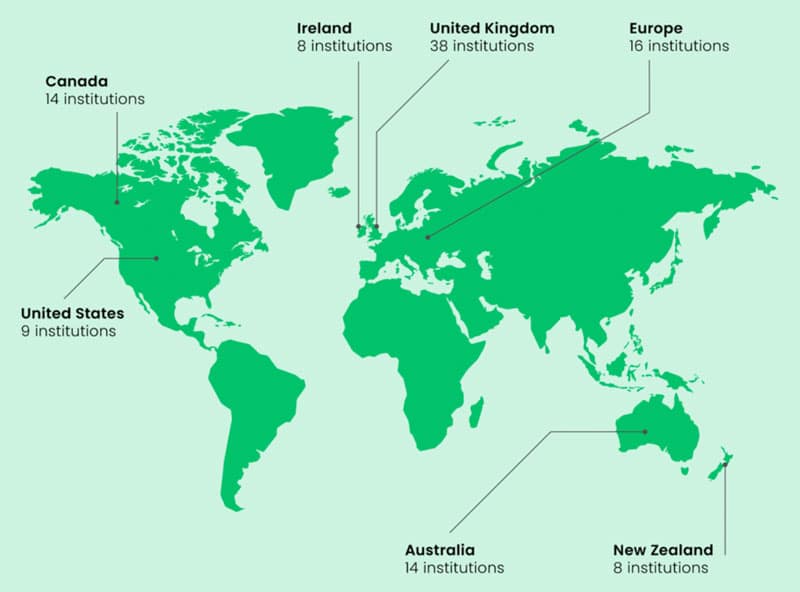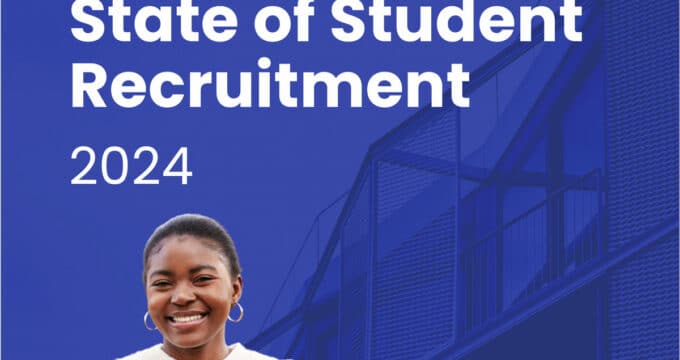Study measures quality of universities’ response to international enquiries
- Roughly one in five international student queries to universities went unanswered in a recent mystery shopping study
- Only one in four prospective students reported any follow-up communication from universities
- Just over a third of enquiring students said they would not continue to engage with the university based on their experience in making their initial enquiry
A new mystery shopping study, produced by industry consultancy Edified and enrolment services management company UniQuest, aims to benchmark the quality of responses to international student enquiries across 107 universities.
The universities in the sample were largely based in the UK, Ireland, Australia, and New Zealand. But the survey extended to a sample of additional institutions elsewhere in Europe, and in Canada and the US as well.

The mystery shoppers, built around a series of personas and with each matched to a specific enquiry channel, were active between April and June 2022, with a selection of six personas placing enquiries with each university in the study.

Top-level findings
As in last year's edition of the Edified-UniQuest study, a surprising number of mystery shoppers did not receive a response. One in five enquiries lodged for the 2022 study went unanswered. And for those that did receive a response, only one in four reported any follow-up communication from the university.
The quality of those responses was under the microscope this year as well. The study found that only half of mystery shoppers received answers to all of the questions they asked (suggesting that the initial responses from the universities may have been templated). This may have played into another surprising statistic this year with 35% of prospective students saying that they would not continue to engage with a university based on the experience they had when making their initial enquiry.
Manage enquiry channels carefully
Also of note this year is that there were clear differences in responsiveness across enquiry channels. For example, students received responses to 96% of enquiries sent by email. "Email was a core communication channel," notes the study report. "Every institution offered email or web forms and displayed these channels prominently on
their websites."
However, very few supported mobile messaging apps such as WhatsApp. And half of mystery shopping enquiries filed via WeChat received no response at all.
The report adds that the available enquiry channels for a given university were not always clear to prospective students. "Mystery shoppers were overwhelmed and frustrated when enquiry points were not clearly signposted or easy to access."
Distinguish yourself
In general, mystery shoppers rated institutional replies highly for clarity and mobile responsiveness. But the study reveals as well some real issues with personalisation in those replies. While initial enquiry responses focused mainly on providing facts about requirements, dates, and next steps, many institutions missed the opportunity to persuade prospects or to make a more lasting impression. "The majority missed the chance to engage students with ‘value-add’ content or explain the benefits of studying there," says the report.
Some of this could be addressed in follow-up contacts after the original institutional response, but, as noted above, few institutions in the study sent any follow-ups. The report explains that, "Only two institutions achieved a perfect score for follow-up; one in Europe and another in Australia. At these institutions, every enquiry was followed up within a week, indicating integrated systems and effective internal processes."
On that point, the study also reveals that one in five institutions still rely on fairly basic tools, such as spreadsheets and shared email accounts, to manage enquiries. This likely explains, in part, the low volume of follow-up activity reported by mystery shoppers.
The report authors recommend follow-ups with prospective students within five days of the initial enquiry, and that that contact should be as personalised as possible. "A personal email or phone call conveys a feeling of care and makes students feel valued. Personal communication can be supplemented with email marketing campaigns to ensure your institution stays top of mind while students work through the decision-making process."
For additional background, please see:















